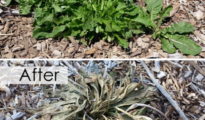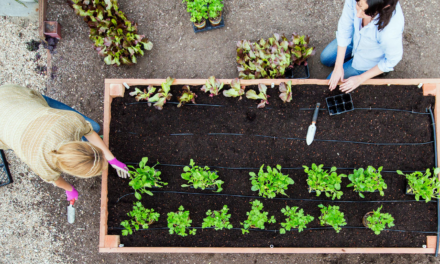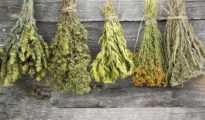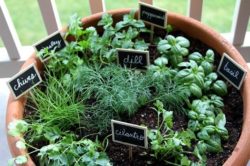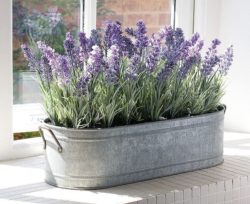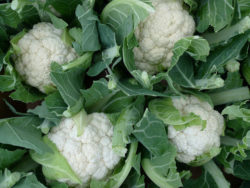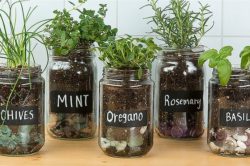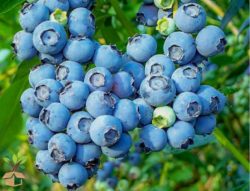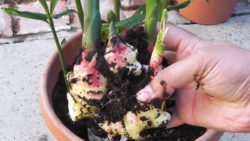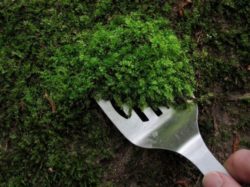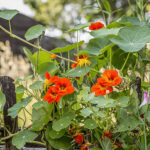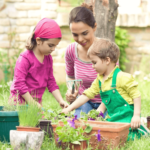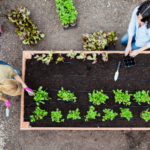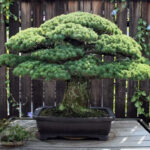When planning a garden, one of the most critical choices a gardener makes is the type of seeds to plant. This decision can influence not just the health and yield of the garden, but also the environmental impact and nutritional value of the produce. The debate between heirloom and hybrid seeds is ongoing, with passionate advocates on both sides. This blog post will delve into the benefits and drawbacks of planting heirloom and hybrid seeds, aiming to provide gardeners with the information needed to make informed decisions tailored to their gardening goals.
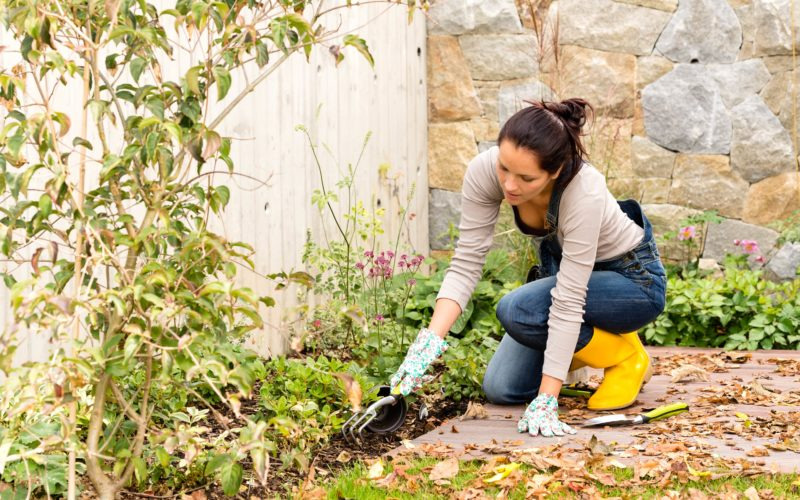
Understanding Heirloom Seeds
What are Heirloom Seeds?
Heirloom seeds are varieties that have been passed down through generations, often over a period of at least 50 years. They are open-pollinated, meaning they reproduce through natural means such as wind, insects, or birds. This traditional way of propagation ensures genetic diversity and leads to plants that are well-adapted to specific local conditions.
Benefits of Heirloom Seeds
- Genetic Diversity and Adaptability: Heirloom plants often exhibit greater adaptability to local growing conditions, improving their ability to withstand pests and diseases.
- Superior Flavor and Nutrition: Many gardeners and chefs prefer heirlooms for their unmatched flavors and nutritional profiles, which have been nurtured over generations.
- Environmental Sustainability: Growing heirlooms encourages biodiversity and reduces dependence on commercial seed producers, contributing to a more sustainable gardening practice.
Drawbacks of Heirloom Seeds
- Variability in Yield: Heirloom plants can be less predictable in terms of yield, with more variation from plant to plant compared to hybrids.
- Susceptibility to Disease: While some heirlooms are well-adapted to specific conditions, they may lack the disease resistance bred into many hybrid varieties.
Understanding Hybrid Seeds
What are Hybrid Seeds?
Hybrid seeds are the result of controlled pollination techniques, where two different, but related, plant varieties are crossbred to produce offspring that contain desired traits from both parents. These traits might include improved yield, disease resistance, or specific growth habits.
Benefits of Hybrid Seeds
- Consistency and Reliability: Hybrid seeds are bred to produce plants that are uniform in appearance and performance, leading to more predictable yields.
- Enhanced Disease Resistance: Many hybrids are specifically bred for resistance to common diseases, potentially reducing the need for chemical interventions.
- Improved Yield: Through selective breeding, hybrids often offer higher yields and faster maturity than their heirloom counterparts, making them appealing for those looking to maximize production.
Drawbacks of Hybrid Seeds
- Loss of Seed Sovereignty: Hybrid seeds must be purchased anew each year, as saving seeds from hybrids does not typically yield true-to-type plants in subsequent generations.
- Reduced Biodiversity: The widespread cultivation of hybrids can lead to a decrease in genetic diversity, making crops more vulnerable to pests and diseases.
- Environmental and Health Concerns: The intensive breeding and production processes associated with hybrids can have negative environmental impacts, and the focus on yield and resistance may come at the expense of flavor and nutritional content.
Making the Right Choice for Your Garden
The decision between heirloom and hybrid seeds depends on a gardener's priorities, including taste preferences, yield goals, environmental concerns, and willingness to experiment. Here are some considerations to help make that choice:
- Personal Taste and Culinary Use: If flavor and nutritional content are your top priorities, heirloom varieties may be the best choice.
- Yield and Reliability: For those focused on maximizing production and consistency, hybrids may offer the best solution.
- Environmental Impact: Gardeners who prioritize sustainability and biodiversity might lean towards heirloom varieties to preserve genetic diversity and reduce reliance on commercial seed companies.
Both heirloom and hybrid seeds have their place in the modern garden, each offering unique benefits and challenges. By understanding the distinctions between these two types of seeds, gardeners can make informed decisions that align with their values, preferences, and goals for their garden. Whether choosing the historical allure of heirloom varieties or the robust reliability of hybrids, the key is to select seeds that will thrive in your specific conditions, bringing joy and bounty to your gardening endeavors.
Sustainability and Environmental Consideration
Preserving Heritage and Biodiversity
- Cultural Heritage: Heirloom seeds often carry historical significance and stories that have been preserved through generations. By choosing heirloom varieties, gardeners play a role in maintaining agricultural heritage and the diverse tapestry of plant genetics.
- Seed Saving and Sharing: Heirloom gardening fosters a culture of seed saving and sharing among communities, promoting resilience and independence from commercial seed sources.
Environmental Footprint of Hybrids
- Resource Use: The development of hybrid seeds often involves significant inputs of resources, including water, fertilizers, and energy, raising concerns about the environmental impact of these practices.
- Pollinator Health: The diversity in heirloom gardens can support a healthier ecosystem for pollinators, whereas mono-cropping of hybrids can contribute to the decline of bee populations and other beneficial insects.
Economic Considerations
Cost of Seeds
- Initial Investment: Hybrid seeds can be more expensive to purchase initially due to the cost of development and patent protections. However, their higher yield potential may offset these costs for some gardeners.
- Long-Term Savings: Heirloom seeds represent a one-time purchase if gardeners save seeds for future planting, potentially offering long-term cost savings and a degree of food security.
Adapting to Climate Change
Resilience and Adaptation
- Heirlooms' Role in Adaptation: The genetic diversity inherent in heirloom varieties may offer crucial resilience in the face of changing climate conditions, as diverse traits could become advantageous in unexpected ways.
- Hybrids for Specific Challenges: Hybrid seeds can be developed quickly to address specific challenges, such as drought tolerance or heat resistance, offering solutions for gardens affected by climate change.
Community and Educational Benefits
Building Knowledge and Skills
- Heirloom Gardening as Education: Gardening with heirloom seeds offers an opportunity to learn about plant genetics, biodiversity, and the importance of preserving plant varieties. It can be a rich educational experience for individuals and communities alike.
- Hybrids and Agricultural Innovation: Growing hybrid varieties can also educate gardeners on modern agricultural techniques and the science of plant breeding, highlighting the advancements in crop development.
Fostering Community Connections
- Seed Swaps and Sharing: Heirloom gardening encourages community engagement through seed swaps, gardening clubs, and educational workshops, strengthening local food systems.
- Collaborative Problem-Solving: Gardeners who grow hybrids can share insights on disease management and productivity, contributing to a knowledge base that supports community gardening efforts.
A Balanced Approach
The decision between heirloom vs hybrid seeds does not have to be an either/or proposition. Many gardeners find a balanced approach, incorporating both types of seeds into their gardens, to be the most rewarding. This strategy allows for the preservation of genetic diversity and agricultural heritage through heirlooms, while also taking advantage of the yield improvements and disease resistance offered by hybrids.
In the end, the best choice is one that aligns with your values, goals, and the specific needs of your garden. Whether you're drawn to the unique flavors and stories of heirloom varieties or appreciate the consistency and robustness of hybrids, both paths offer their own rewards and challenges. The key is to remain open to learning and adapting, as the garden is always a place of growth—not just for the plants, but for the gardener as well.


